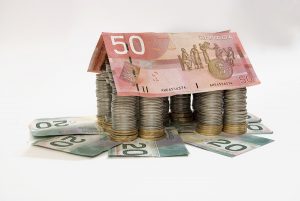
Renting Out Your Property
If you rent out property, there are a number of expenses that may be deducted from your rental income to lower your overall tax bill. Some typical expenses include:
- Mortgage interest;
- Property taxes;
- Utility costs;
- Insurance;
- Advertising;
- Maintenance; and
- Property management fees.
If you only rent out a portion of your home, please keep in mind that you only may be able to deduct a portion of your expenses.

Reasonable Expectation of Profit
When renting out a property, the Canada Revenue Agency expects taxpayers to have a reasonable expectation of profit. That is why taxpayers who have rental losses in consecutive years are typically audited. A reasonable expectation of profit test ensures that Canadians do not claim they are renting out property, only to receive rental losses lowering their overall tax bill.
Capital Cost Allowance
Capital Cost Allowance (CCA) may be used to depreciate the purchase price, and the cost of capital improvements. It cannot be used to depreciate the land, and it cannot create a rental loss. As above, if you are only renting out a portion of your home, then you may only use a portion of the CCA.
Claiming CCA may mean you lose your entitlement to the Principle Residence Exemption. Please see our article here for further information.
Property or Business Income
When you rent out a property, or a portion of your home, you are typically earning property income. In order to earn business income from a property, you must provide services in relation to the rental of the property. Essentially, the more services you provide, the more likely the income earned would be classified as business income.
The reason this distinction is important is because there are significant tax differences between earning property and business income.
An additional difference is if you are earning property income, you may use the cash basis of accounting, where if you are earning business income, you must use the accrual basis of accounting.
Change in Use
If you change your residence from a principle residence to a rental property, or vice versa, please see our article here.
Foreign Property
If you own property outside of Canada, you use this property as a rental, and the cost exceeds $100,000 CDN (this includes capital improvements), you must complete form T1135 Foreign Income Verification Statement. Failure to do so will result in the Canada Revenue Agency charging you penalties.
If you own a foreign rental property, and have not disclosed this information to the CRA, you may be eligible for a voluntary disclosure.
If you rent out property, have questions, or want to know if we can lower your tax bill, give us a call today!
CRA Resources
Statement of Real Estate Rentals
Case Law
McInnes v. The Queen, 2014 TCC 247 – Business Income or Rental Property Income?
Seborro v. The Queen, 2001 CanLii 946 – Legitimate Rental Expenses, or Personal Expenses
Caradonna v. The Queen, 2002 CanLii 795 – Reasonable Expectation of Profit
**Disclaimer
This article provides information of a general nature only. It does not provide legal advice nor can it or should it be relied upon. All tax situations are specific to their facts and will differ from the situations in this article. If you have specific legal questions you should consult a lawyer.

